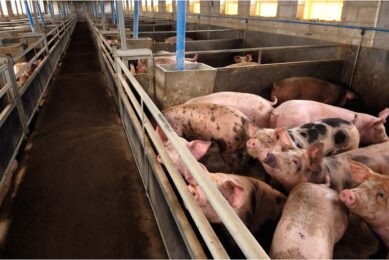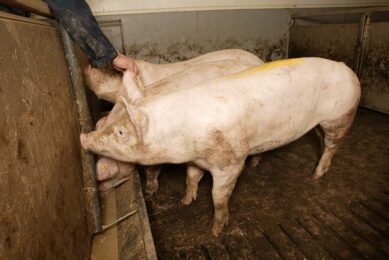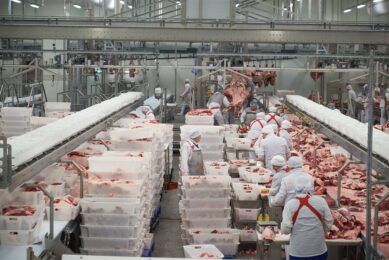Results of Russia’s inspection of Canadian pork plants
The inspection by Rosselkhoznadzor and Kazakh Veterinary Service was carried out from 23 May – 3 June. 18 plants interested in exporting their products into CU countries were inspected.
According to the results of material analysis obtained in the course of joint inspection, systematic violations of animal health requirements and norms of the Customs Union were detected. In particular, not all specialists of the plants responsible for food safety assurance were made aware of animal health requirements and norms of Russia and CU. Several plants had no documents confirming that the inspection had been carried out by the representatives of the veterinary service of Canada for the compliance with the CU and Russian animal health requirements and norms.
It was also noted that most of the major disadvantages detected in the course of previous inspection were detected again even at the inspected plants. The post-mortem examination was not carried out in full, for example the horses were not tested for glanders and the birds were not examined before slaughter. Veterinary-sanitary expertise did not fully correspond to Russian Rules for veterinary examination of slaughter animals and for veterinary sanitary expertise of meat and meat products.
Some of the inspected plants lacked unified system of carrying out veterinary-sanitary expertise, veterinary stamp impression was not always readable. The formal character of the veterinary control during the production of animal products was also noted – at some plants the control of knife sterilisation was poor; the staff was also poorly controlled, no health certificates were required for those who were in contact with raw meat at the commencement of employment; at most of the plants manufacturing processes, flows of raw materials, semi-finished products and finished products were crossing. At some plants while testing samples of animal products for Salmonella in accordance with microbiological control programmes six positive samples in 50 days were acceptable. However no measures were taken to find the reasons and to prevent the presence of Salmonella in future.
Since the deficiencies detected at 8 plants do not require much time to eliminate them, these plants will be included into the lists of plants approved to export their products to Russia after the issues are agreed with the Veterinary Services of Kazakhstan and Belarus. Export of animal products from these plants is possible only after the deficiencies detected during the inspection are corrected.
- No. 454 (slaughter of cattle);
- No. 629 (slaughter of poultry, cutting, packing and storage);
- No. 702 (cutting, processing, packing and storage of beef, pork, mutton and poultry meat),
- No. 283 (cutting of beef, mutton and pork),
- No. 53 (slaughter of cattle, cutting of beef),
- No. 366 (cutting and packing of beef),
- No. 710 and
- No. 40 (cutting of beef and mutton)
In addition, based on the analysis of materials taken during an inspection it was decided to reserve the right to export products from Canada to Russia. It is related to Plant No.14 (slaughter, cutting and storage of pork), No. CD 11 (production of feeds).
Taking into account that there was not a possibility to fully comply with the CU and RF veterinary and sanitary requirements at 6 Canadian plants (No.419 slaughter of pigs, pork cutting and packing), No. 506 (slaughter of cattle, horses, beef and horse meat cutting and packing), No.285 (finished meat products), No.713 (production of finished meat products) No.76, No.657 (slaughter of cattle, horses, beef and horse meat cutting), their inclusion into the list will be addressed when the Canadian party provides evidence that the deficiencies have been corrected and guarantees that veterinary and sanitary requirements and norms of the Customs Union and the Russian Federation are complied with.
Since violations of the CU and Russia veterinary and sanitary requirements and norms have been detected, on 3 August 2011 the Rosselkhoznadzor imposes temporary restrictions on import of products to the RF from Plant No.484 (slaughter of pigs, pork cutting and packing) and import from Plant No.126 (slaughter of pigs, pork cutting and packing) will remain under previously imposed temporary restrictions.
Source: Rosselkhoznadzor
Join 18,000+ subscribers
Subscribe to our newsletter to stay updated about all the need-to-know content in the pigsector, three times a week. Beheer
Beheer










 WP Admin
WP Admin  Bewerk bericht
Bewerk bericht